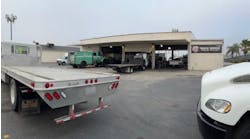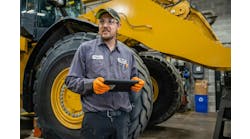The makeup of many commercial fleets has significantly changed over the past decade with more specialized vehicles and numerous technological advances, all of which adds to the complexity of repairs and require partnering with a service network that can correctly maintain these assets, observes John Meiklejohn, the North American director of vehicle maintenance Assistance for PHH Arval, a leading fleet management services provider in the U.S. and Canada (www.phharval.com). Meanwhile, fleets have become decentralized and niche "marketcentric," where the focus is on getting the right vehicle to the right location.
"This continuing trend has considerable implications for maintenance performance and management," he says. "Vehicle maintenance programs must allow for increased complexity and align with client goals of keeping drivers productive and safe.
"Cost containment is a priority, but the need for reduced downtime and increased productivity is equally important. The costs associated with lost revenue from a sidelined vehicle can outweigh the cost of the repair itself."
Further, most vehicles with specialized upfitting cannot be replaced with a generic daily rental vehicle, he adds.
STRICT POLICIES
"The best-in-class fleets maintain their vehicles with strict policies outlining everything from contact authorization information, the hourly tolerance for downtime and what the organization will and won't allow in repairs," says Meiklejohn. "A carefully crafted policy will keep a fleet safe and productive, adhere to services required to maintain the OEM warranty and allow for the option of refusing common upselling repairs."
In the days before onboard engine management systems, many suppliers were able to upsell by performing "tune ups" by replacing items such as the air filter, fuel filter, spark plugs and distributor rotors, regardless of whether the components had worn out, he says.
Today, onboard diagnostics can pinpoint exactly what is wrong with an engine making the tune up obsolete. As a result, many suppliers are becoming more creative in recommending unnecessary services.
DATA COLLECTION AND MANAGEMENT
"Perhaps the most important change in managed vehicle maintenance is the shift from repair authorization to transaction management," Meiklejohn opines. "This involves managing the transaction from beginning to end, to return the asset to productivity as quickly as possible at the lowest cost.
"This attention to the details yields a huge database of maintenance information to review."
Knowing what a company has spent on maintenance is only half the story, he notes. "The real benefit comes from correctly bucketing and reviewing the data to arrive at attainable and actionable recommendations.
"Good maintenance data can speak to what vehicles should be in the fleet, how they should be equipped and how they should or shouldn't be utilized."



